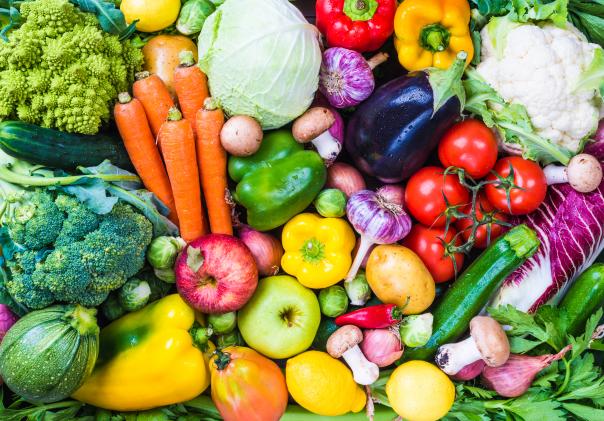
The results showed that the consumption of raw fruits and vegetables significantly outperformed cooked, canned or processed forms in terms of reducing mental health issues.
The top 10 raw foods found to be related to better mental health were: carrots, bananas, apples, dark leafy greens like spinach, grapefruit, lettuce, citrus fruits, fresh berries, cucumber, and kiwifruit.
The study notes that while it is clear that there is a relationship between fruit and vegetable intake and mental health, it is still unknown whether the ways that fruits and vegetables are prepared and consumed might have distinctly different effects on mental health.
Sarah Coe, nutrition scientist at British Nutrition Foundation, said: “Some raw vegetables, for example salads, are good choices to include in a healthy, balanced diet but what’s more important is to include a large amount and variety of vegetables whether cooked or raw, as these foods are all sources of fibre and provide lots of essential vitamins and minerals.”
The study comprised 422 adults aged 18–25, living in New Zealand and the United States. They were screened for symptoms of mental illness.
Scientists also took into account participants’ exercise habits, overall diet, existing health conditions, ethnicity, gender and socioeconomic status.
The study said that raw fruits and vegetables may provide greater levels of micronutrients than processed fruits and vegetables, which could explain their stronger association with improved mental well-being.
Previous research has shown that people who eat more fruits and vegetables also have a higher likelihood of optimal mental states, such as greater happiness, positive mood life satisfaction and socio-emotional flourishing. Higher intakes of fruit and vegetables are associated with increasingly higher mental health scores.
The study also cites previous research that suggests positive mood states can also shift people toward healthier food choices and negative mood states such as stress can shift people toward unhealthier food choices and overeating.
The cooking and processing of fruit and vegetables has the potential to diminish nutrient levels. Water-soluble nutrients such as vitamin C and B, found in foods such as spinach and green beans, are particularly vulnerable to heat degradation. Some evidence also suggests that cooking can reduce the quantity and activity of antioxidants, according to the study.
Coe added: “Cooking some fruit and vegetables (for example tomatoes and carrots) can make certain nutrients more available for the body to absorb when the food passes through the gut. But how you cook them is important – to keep as much of the heat-sensitive vitamins as possible, lightly cook vegetables by steaming or microwaving. Avoid deep frying or adding butter or salt during cooking.
“In terms of nutrients and mood, health claims have been approved for use in the EU for some vitamins and minerals in relation to psychological and cognitive functions (e.g. mental performance, tiredness). One of these nutrients is the B vitamin folate, which is found in some vegetables. Whilst deficiency in these nutrients could affect mood, it is not the case that eating large quantities of these nutrients will promote better mood.”